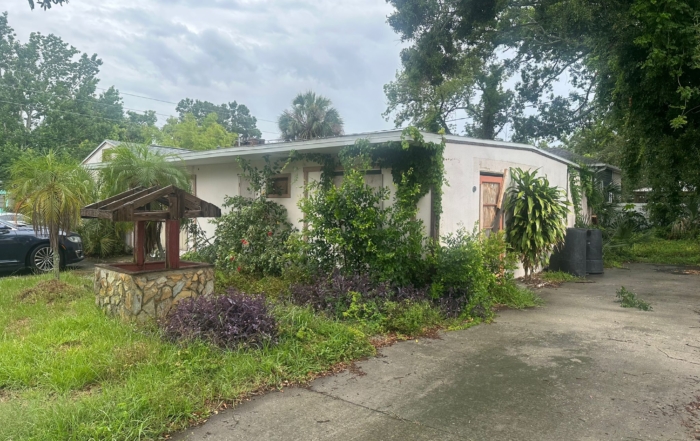
By Jorge Vazquez, CEO
As a seasoned real estate investor with over 20 years of experience, I’ve seen firsthand how property ownership and inheritance laws can dramatically impact families and their assets. A question I often get asked, especially by investors and homeowners, is: What happens to community property when one spouse dies? The laws surrounding property rights and inheritance are essential for everyone to understand, especially those with real estate investments.
In this article, we’ll dive deep into how community property works, what happens when one spouse dies, and the implications for real estate investors and homeowners, especially in Tampa, Florida. Knowing how your investments and properties are handled in life and death ensures peace of mind and financial stability for your family.
Understanding Community Property
Community property refers to a system of property ownership used in nine states across the U.S., including California, Texas, and Arizona. Under this legal framework, assets acquired during the marriage are equally owned by both spouses, regardless of who earns the income or whose name is on the title. This includes properties, business ventures, and investment portfolios.
It’s important to note that Florida is not a community property state but follows equitable distribution laws. However, many Floridian investors and homeowners have assets in community property states, so understanding these principles remains crucial.
When One Spouse Dies: The Basic Principles
When a spouse dies in a community property state, half of the community property automatically belongs to the surviving spouse. The remaining half is distributed according to the deceased spouse’s will or, if no will exists, through intestate succession laws (the state’s legal distribution process).
In Tampa and other areas with heavy real estate investment, these laws can significantly affect property transfer processes, particularly for out-of-state investments. Investors must plan ahead to avoid disputes, delays, and unintended property loss due to legal complexities.
Community Property with Right of Survivorship
In some states, spouses can hold their community property with the right of survivorship. This means that when one spouse dies, the surviving spouse automatically receives full ownership of the property without going through probate. This arrangement can streamline the process, reduce legal fees, and provide peace of mind to real estate investors managing multiple properties.
Florida, while not a community property state, does allow tenancy by the entirety, a similar concept where ownership of property automatically transfers to the surviving spouse.
What Happens When There’s No Will?
When one spouse dies without a will, the state’s intestate succession laws come into play. In community property states, this often means that half of the community property goes to the surviving spouse, while the other half is divided among heirs (children, parents, etc.). The exact distribution depends on the state’s laws and whether there are surviving children or other relatives.
For investors in Tampa, ensuring that all properties—whether held in Florida or other states—are covered by a well-structured estate plan is crucial. This avoids unnecessary legal battles and ensures that properties are passed on according to your wishes.
Implications for Real Estate Investors
As real estate investors, particularly those who own properties across multiple states, it’s important to understand how community property laws affect property ownership and transfers after death. If you or your spouse own property in community property states, you must consider the following:
-
Asset Management and Control: Upon death, how will your properties be managed or transferred? Having a clear will, trusts, or other legal documents ensures control over your investments.
-
Tax Implications: Community property laws can affect the tax basis of inherited properties, including real estate. It’s important to consult with a tax advisor to understand the potential tax consequences for your heirs.
-
Out-of-State Property: If you own investment properties in both community property and non-community property states, such as Florida, it’s essential to structure your estate planning documents to account for varying legal systems.
LLC Ownership Between Spouses: What Happens When One Spouse Dies?
For real estate investors who own an LLC with their spouse, it’s critical to understand the implications of ownership when one spouse dies. Whether you’re in a community property state or not, LLC ownership can be a complex issue that demands careful planning.
-
Transfer of Ownership Interest: When a spouse who co-owns an LLC passes away, their share of the LLC may either transfer to the surviving spouse or be distributed according to the deceased spouse’s will. In most cases, LLC operating agreements will specify what happens in such a scenario, including provisions for ownership transfer or buyout options. If no clear provisions exist, the share of the LLC may go through probate or intestate succession laws, which could delay business operations or result in ownership disputes.
-
Community Property and LLCs: In community property states, an LLC interest acquired during marriage is usually considered community property, meaning both spouses have an equal claim to it. If one spouse dies, the surviving spouse automatically retains their half, while the other half may be distributed based on the will. Investors must ensure that the LLC’s operating agreement aligns with the community property laws in their state and specifies how the transfer of ownership should occur upon death.
-
Joint Ownership vs. Sole Ownership: If the LLC is owned jointly by both spouses, the ownership transfer may be more straightforward, especially if the operating agreement allows for automatic transfer to the surviving spouse. However, if only one spouse is listed as the official owner, even if the LLC is considered community property, the ownership interest will still need to be formally transferred, typically through probate or other legal channels.
-
LLC Operating Agreement: One of the most important documents for investors owning LLCs with their spouses is the LLC operating agreement. This agreement can outline what happens in the event of one spouse’s death, including buyout provisions, automatic transfer clauses, or provisions for the business’s continuation. Investors should regularly review and update their LLC operating agreement to ensure that it aligns with their estate planning goals and any changes in law.
Practical Steps for LLC Owners
-
Update Your LLC Operating Agreement: Ensure that the LLC’s operating agreement outlines what happens in the event of a spouse’s death, specifying who inherits the ownership interest and whether there are buyout options.
-
Consider a Buy-Sell Agreement: A buy-sell agreement can be a useful tool for LLCs with multiple members (including spouses). This agreement outlines what happens if one member dies or exits the LLC, providing a clear plan for the transfer or sale of their ownership interest.
-
Estate Planning for LLCs: Work with an estate planning attorney to integrate your LLC into your overall estate plan. This ensures that your business interests are protected and transferred according to your wishes without unnecessary legal delays.
-
Tenancy by the Entirety (Florida): In Florida, spouses can own LLC membership interests as tenants by the entirety, meaning that if one spouse dies, the ownership automatically transfers to the surviving spouse, avoiding probate.
Conclusion
When a spouse dies, community property laws and LLC ownership structures play a major role in determining what happens to your assets. For real estate investors, especially those with LLCs or properties in community property states, careful planning is essential to ensure that your investments are passed on smoothly and efficiently.
Whether you’re holding properties or an LLC, structuring your estate plan and LLC agreements with clear directives can prevent confusion, costly legal battles, and unintended property transfers. Ensure that your real estate holdings, whether in Tampa or across the U.S., are protected for future generations.
Call to Action
Click the Get Started button to start receiving real estate education and access to our properties.
How Does a Property Flipper Make a Profit in 2025?
Jorge Vazquez2025-07-11T20:16:48+00:00July 11th, 2025|Comments Off on How Does a Property Flipper Make a Profit in 2025?
How Does a Property Flipper Make a Profit in 2025? By Jorge Vazquez, CEO of Graystone Investment Group It's been four years since I first wrote that viral Forbes piece, and I still get [...]
The College Rental That Nearly Schooled the Landlord: Lessons from Bradley’s Student Housing Fiasco
Jorge Vazquez2025-07-10T19:32:35+00:00July 10th, 2025|Comments Off on The College Rental That Nearly Schooled the Landlord: Lessons from Bradley’s Student Housing Fiasco
A "Safe Bet" Gone Sideways Bradley is one of those agent-investors we all admire. Sharp, experienced, hands-on, and usually five steps ahead of any mess. But even the best of us have [...]
For Sale: 2601 46th St S, Gulfport, FL 33711
Jorge Vazquez2025-07-09T20:37:56+00:00July 9th, 2025|Comments Off on For Sale: 2601 46th St S, Gulfport, FL 33711
2601 46th St S, Gulfport, FL 33711 Asking Price: $285,000 3 Bed | 2 Bath | 1,622 Sq Ft | Built 1948 [...]
For Sale: 1458 Sea Breeze Ln, Melbourne, FL 32935
Jorge Vazquez2025-07-09T18:11:20+00:00July 9th, 2025|Comments Off on For Sale: 1458 Sea Breeze Ln, Melbourne, FL 32935
1458 Sea Breeze Ln, Melbourne, FL 32935 • 4 Bed / 3 Bath • 1,904 sqft | Built in 1963 Asking [...]
Opportunistic Buyers Are Back: Why Florida’s Real Estate Market Feels Like 2010 Again
Jorge Vazquez2025-07-09T01:10:13+00:00July 8th, 2025|Comments Off on Opportunistic Buyers Are Back: Why Florida’s Real Estate Market Feels Like 2010 Again
If you were around during the aftermath of the 2008 crash, you might remember that eerie silence around 2010—the kind where agents left the business, investors stayed on the sidelines, and buyers were too [...]
Can Buying Real Estate in Florida Help You With Immigration?
Jorge Vazquez2025-07-07T18:54:31+00:00July 7th, 2025|Comments Off on Can Buying Real Estate in Florida Help You With Immigration?
Can Buying Real Estate in Florida Help You With Immigration? So you’re wondering, “If I buy a couple rental properties in Florida, does that mean I can stay here forever, sip cafecito on the [...]
Meet our Team of Experts!

Meet Vanessa Martin, the Lending Operations Manager
Vanessa has over 23 years of business management experience and has been in the real estate industry since 2018. She and her team prioritize serving clients and finding the right financing options. Schedule a meeting with Vanessa: https://graystoneig.com/vanessa
Meet Cody Bergstrom, Your Expert in Finding Deals
My team and I have over 20 years of experience in real estate. We have strong relationships with wholesalers, probate lawyers, sellers, and others in Florida. I aim to align your investments with your vision and deliver exceptional results. Contact Vanessa to schedule a meeting: https://graystoneig.com/cody
Meet Marylyn Patankar, Your Property Manager Partner
Hello, I’m Marylyn Patankar, the Field Manager and New Client Ambassador at Graystone Property Management. I educate investors about our perks, onboard new landlord investors, and manage on-site operations. Schedule a meeting with me here: https://graystoneig.com/marylyn









